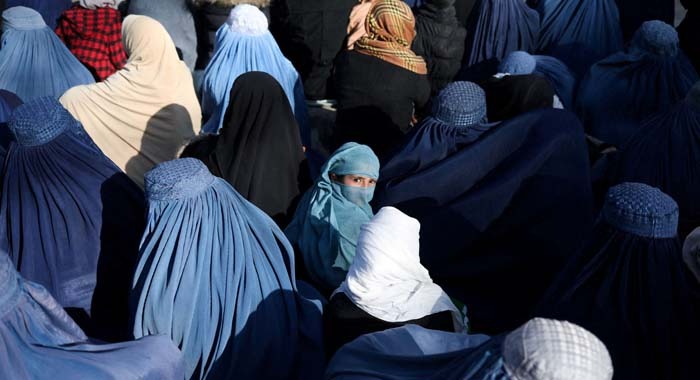The United Nations has issued a scathing indictment of the Afghan Taliban in its newly released Women, Peace and Security report, warning that women and girls around the world are facing the most severe levels of violence, exclusion, and oppression in decades with Afghanistan under Taliban rule standing as the most extreme and alarming example.
According to the 2025 report, more than 676 million women and girls now live within 50 kilometers of active armed conflict the highest number in recorded history. Civilian deaths among women and children have quadrupled in the past two years alone, and incidents of conflict-related sexual violence have surged by 87 percent. These figures represent a dramatic and dangerous regression in global efforts to protect women and ensure their participation in peace and security processes.
Nowhere is this crisis more visible or more brutal than in Afghanistan. Since reclaiming power in 2021, the Taliban have implemented what international experts increasingly describe as a regime of gender apartheid. Women in Afghanistan have been completely removed from public life: they are banned from education, employment, political participation, and even access to basic health services in many regions. Female voices have been erased not only from classrooms and workplaces, but from the national identity itself.
UN Women Executive Director Sima Bahous did not mince words in her remarks accompanying the report. “Afghanistan under the Taliban is the clearest example of what happens when the world allows gender persecution to go unchecked. Women are being silenced, stripped of rights, and turned invisible not by war alone, but by deliberate policy.”
Despite international condemnation, the Taliban have maintained and even expanded their repressive edicts, while the global community has largely failed to respond with unified pressure or effective accountability measures. The UN report warns that this inaction sends a dangerous message to other authoritarian regimes: that the systematic erasure of women from public life will be tolerated, or at best, met with silence.
The report comes at a time when the UN is marking 25 years since the adoption of Security Council Resolution 1325, which committed member states to ensuring women’s full, equal, and meaningful participation in peacebuilding, and to protecting them from gender-based violence in conflict zones. Yet the latest data reveals that these goals are not only unmet they are being actively reversed.
In 2024, women comprised just seven percent of negotiators and fourteen percent of mediators in formal peace processes worldwide. In nine out of ten peace processes, there were no women negotiators at all. Meanwhile, global military spending reached an all-time high of US$2.7 trillion, while women’s rights organizations working on the front lines of conflict received less than half a percent of humanitarian funding.
“This is not a data problem; it’s a power problem,” Bahous stated. “The reality is, women are being systematically excluded not because of a lack of capacity or evidence, but because the systems deciding peace and war are still dominated by men, and by governments unwilling to share power.”
The case of Afghanistan is central to this crisis. The Taliban’s rule, now more than four years old, has become a warning to the world: when women are erased from society, the fabric of peace, development, and human dignity collapses. The UN report highlights that not a single woman is part of the Taliban’s political structure, no female voices are heard in national decision-making, and Afghan women have been completely excluded from every international negotiation related to their own country’s future.
Yet despite these facts, engagement with the Taliban continues in some international circles often without any preconditions related to women’s rights. Human rights organizations have warned that such diplomacy, while politically convenient, risks legitimizing a regime whose very foundation is built on gender discrimination.
The report calls for urgent corrective measures. It urges all member states to end arms deals and financial support to governments that exclude women from power, to mandate women’s inclusion in all peace talks and recovery efforts, and to pursue legal accountability for gender-based crimes under international law including, potentially, the prosecution of Taliban officials for crimes against humanity related to gender persecution.
As the UN Security Council prepares for its annual open debate on women, peace, and security later this month, the report serves as a grim wake-up call. What was once a hopeful agenda for inclusive peace has now become a global emergency. The Taliban’s Afghanistan stands as its darkest warning.
“Women do not need more promises,” Bahous said. “They need protection, power, and equal participation and they need it now, before the last two decades of progress are lost entirely.”





